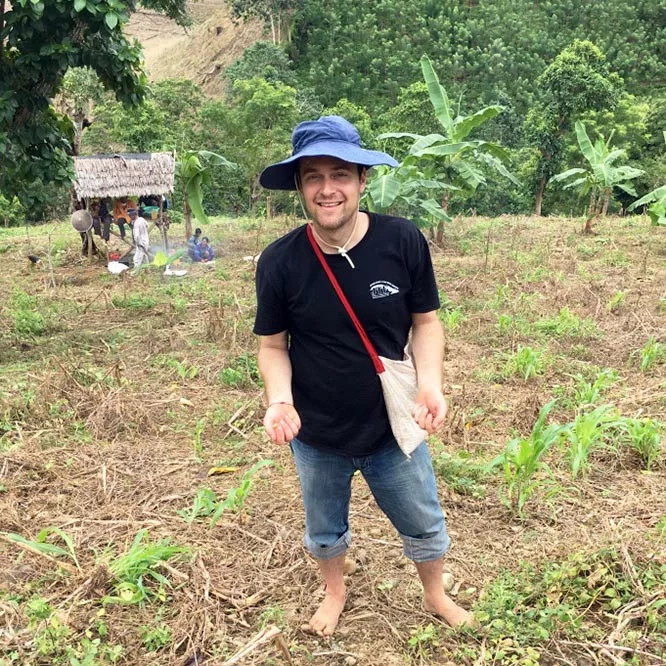As a professor and mentor, Dr. Micah Fisher shares with his students a nuanced understanding of environmental governance relative to state development resources, cultural identity, and processes of globalization. He seeks to bring his students out into the community and brings the community into the classroom to help shape studentsʻ commitments through pragmatic application of theory and solution-building. Fisher completed an undergraduate degree in Urban Policy and Practice at the University of Richmond in 2006, where he also engaged in advocacy and work with houseless and unemployed communities, and those suffering from substance abuse. He also worked on the Gulf Coast to support reconstruction efforts with communities on the ground before working in Indonesia with the International Rescue Committee on Indian Ocean Tsunami reconstruction. After living alongside communities in Aceh, Fisher joined the World Bank to work on various city planning, resource management, and community driven development initiatives. This was followed by a move to the USDA Forest Service bridging climate and forest policy initiatives between the US and the Asia-Pacific.
Background in Disaster Risk Reduction and Conflict Resolution
Fisher completed his master’s at the University of Hawaiʻi in the Department of Urban and Regional Planning. During this time, he worked with local community groups in coastal Hawaiʻi to think through the longer-term considerations of climate change adaptation on issues of sea-level rise. He also sought out more specialized skills in conflict resolution (MIP) and disaster management and humanitarian assistance (DMHA). At UH, he worked with the National Disaster Preparedness Training Center and DMHA to implement FEMA and USAID initiatives, developing curriculum, mentoring students, and developing pedagogy and expertise in disaster risk reduction, adaptation, and resilience.
Indigenous Rights and Participatory Research
In the context of widespread plantation and extractive industry expansion in Indonesia resulting in some of the worst global wildland fires, a 2013 landmark Constitutional Court ruling in Indonesia opened up the possibility to reclaim Indigenous land rights to the vast generational enclosures of state forest land. Applying participatory action research methodologies and environmental conflict resolution approaches, he worked alongside the Kajang Indigenous community in South Sulawesi to carry out participatory mapping and policy drafting initiatives that helped set precedence for the first Indigenous community in Indonesia to formally reclaim state forest land. The Kajang story was featured in The Washington Post and at the UN Conference of Parties on climate change, supporting policy roadmaps for other communities to pursue. Most recently, at the East-West Center Fisher has worked to bridge networks across the Asia-Pacific on community-led climate adaptation and environmental governance initiatives. For this work he was selected as the US nominee for the APEC Science Prize for Innovation, Research and Education (ASPIRE) in 2022.
Fisher’s scholarship and practice focus on initiatives that help to understand land, water, and resource conflict as a means for environmental justice. He also aims to innovate collaborative classrooms and engage emerging technologies to support frontline communities in the Asia-Pacific region and elsewhere.
